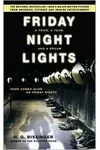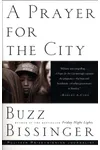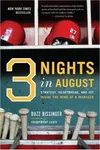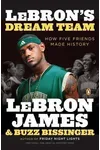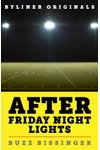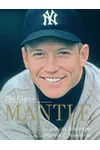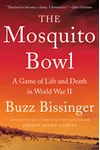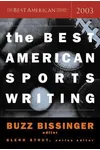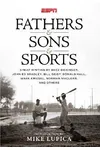Picture an American storyteller who turned a small-town football obsession into a cultural phenomenon—meet Buzz Bissinger! A Pulitzer Prize-winning journalist and author, Bissinger has spent decades weaving meticulous research into gripping non-fiction narratives. From the gridiron glory of Friday Night Lights to unflinching explorations of fame and history, his work captures the heart of American life with a storyteller’s flair.
With a knack for blending investigative grit with emotional depth, Bissinger has earned accolades, inspired adaptations, and carved a unique space in contemporary literature. Let’s dive into the life and legacy of this literary trailblazer!
The Making of Buzz Bissinger
Born on November 1, 1954, in New York City, Harry Gerard 'Buzz' Bissinger III grew up in a world far from the Texas football fields he’d later immortalize. A graduate of Phillips Academy and the University of Pennsylvania, he honed his craft in journalism, starting at papers like the Philadelphia Inquirer, where he won a Pulitzer Prize for investigative reporting in 1987. His early career was marked by a relentless curiosity, a trait that would define his writing. Inspired by literary giants like Ernest Hemingway and Tom Wolfe, Bissinger found his voice in long-form storytelling, blending facts with human drama.
Buzz Bissinger’s Unforgettable Stories
Bissinger’s breakout came with Friday Night Lights (1990), a vivid chronicle of a Texas high school football team and the town that lived for it. The book’s raw honesty and cultural insight made it a bestseller, spawning a TV series and film. Bissinger’s style—immersive, empathetic, and unflinchingly detailed—shines here, turning sports into a lens for exploring race, class, and ambition.
His versatility shines in later works like A Prayer for the City (1997), a deep dive into Philadelphia’s urban struggles, and Three Nights in August (2005), which captures baseball’s strategic heart through Tony La Russa’s Cardinals. In Father’s Day (2012), Bissinger gets personal, reflecting on his bond with his son, blending memoir with his signature emotional clarity. Each work showcases his ability to find universal truths in specific stories.
His writing thrives on immersion—Bissinger embeds himself in his subjects’ worlds, whether it’s a locker room or a mayor’s office. Critics praise his prose for its cinematic quality, while readers love the way he makes complex issues feel intimate. He doesn’t just report; he makes you feel the sweat, the stakes, and the soul of his subjects.
Why Buzz Bissinger Matters
Bissinger’s impact goes beyond bookshelves. Friday Night Lights redefined sports journalism, showing how games reflect deeper societal truths. His work has inspired countless writers to blend narrative and reporting, while adaptations have brought his stories to millions. Beyond sports, Bissinger’s fearless exploration of American identity—its triumphs and flaws—resonates in a polarized world. His honesty, especially in personal works like Father’s Day, invites readers to confront their own complexities.
At 70, Bissinger remains a vital voice, writing essays and teaching, still chasing stories with the same curiosity that launched his career. His legacy is one of connection, using words to bridge divides and illuminate lives.
About Buzz Bissinger
- Born: November 1, 1954, New York City
- Key Works: Friday Night Lights, A Prayer for the City, Three Nights in August, Father’s Day
- Awards: Pulitzer Prize (1987), National Book Critics Circle Award finalist
Ready for a front-row seat to American life? Snag Friday Night Lights and dive into Buzz Bissinger’s unforgettable storytelling!
